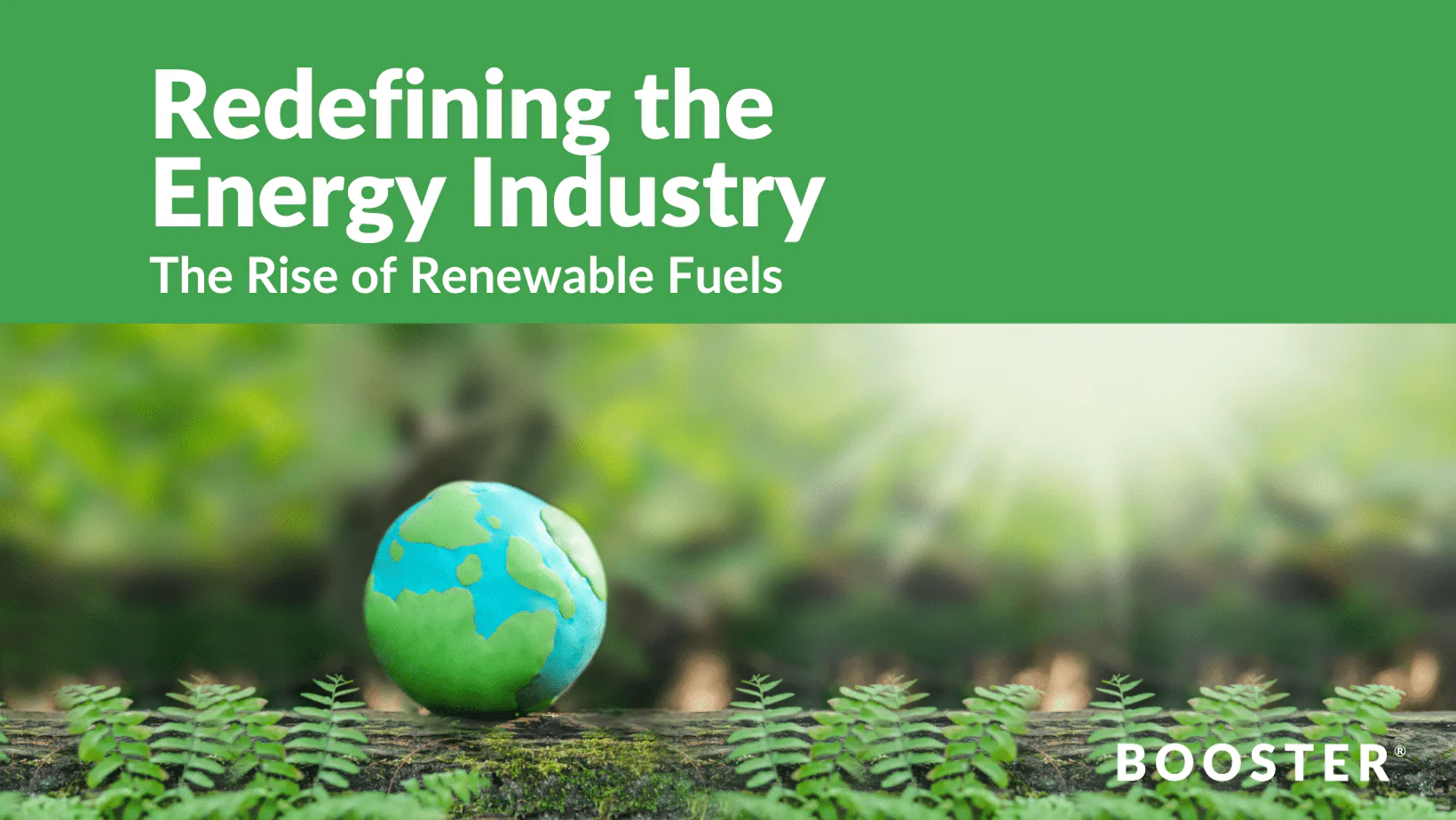The energy sector landscape is undergoing swift and dynamic transformations, with an intensified emphasis on sustainability. This evolution is underscored by a notable surge in the adoption of Renewable fuels, signaling a paradigm shift away from traditional fossil fuels. These alternative sources provide a cleaner energy alternative and pave the way for more sustainable practices. This blog will delve into diverse facets of renewable fuels, elucidating their definition, production methodologies, environmental advantages, and the compelling rationale behind selecting them as crucial elements in fostering a sustainable future.
What are Renewable Fuels?
Renewable and fossil fuels differ in origin. Fossil fuels emit carbon, harming the environment. In contrast, sustainable fuels derive from plants absorbing carbon dioxide or used materials like trash.
Booster’s mission is dedicated to sustainability and helping customers in the energy transition to renewable fuels. Their innovative platform allows customers to fuel their vehicles through mobile delivery with renewable diesel. In 2023 alone, Booster had over 250+ customers using alternative energy, including renewable diesel. This approach helps customers achieve sustainability without impacting performance or cost.
How Renewable Fuels are Better
Choosing renewable energy to power your business has its benefits. Explore the points below to learn more.
1. Energy Efficiency
Biofuels are a sustainable fossil fuel alternative. They use plants, which can grow repeatedly. This makes them sustainable energy sources. In contrast, fossil fuels are finite and limited.
If we specifically look at biodiesel, a prominent renewable fuel, it exhibits superior energy efficiency compared to petroleum diesel. A University of Idaho study, in collaboration with the U.S. Department of Agriculture, reveals significant results. Growing and refining soybeans for biodiesel requires energy. Every unit of fossil fuel energy used produces four and a half units. This is important in biodiesel energy production. In contrast, petroleum diesel generates less than one energy unit in return.
2. Health Benefits
The adverse health effects of gasoline engine emissions are well-documented, with approximately 6.5 million deaths annually worldwide attributed to pollution-related issues. Biodiesel and biomethane are cleaner options. They greatly cut down on harmful particulates. These particles are released into the air. As a result, air quality improves. This also reduces health risks.
3. Environmental Benefits – Less Greenhouse Gas Emissions
Renewable energy, especially biofuels, provides a practical answer to greenhouse gas concerns. biodiesel reduces CO2 by 15%. This underscores its role in combating climate change and can significantly benefit our environment.
4. High-Quality Engine Performance
Biofuels aid environmental health. They also deliver quality performance. Integration into current diesel engines is smooth. They need a few changes. Research shows biofuels improve engine longevity. They keep performance consistent.
Which Renewable Fuels Should You Choose?
In conclusion, renewable fuels are transforming the energy sector. Environmental awareness is increasing. The damage from fossil fuels is evident. Renewable fuels have become crucial. They bring several advantages. These include reduced emissions and economic benefits. We must swiftly adopt renewable fuels. This will revolutionize the energy industry. It leads to a cleaner, sustainable future.
Booster, a frontrunner in mobile energy delivery, champions an energy-agnostic and cutting-edge platform and process. Offering a spectrum of advanced fuels such as renewable diesel, electric vehicle (EV) charging, and Hydrogen, Booster ensures direct delivery to your vehicle, aligning seamlessly with sustainability objectives. The service is characterized by its unwavering commitment to performance excellence without incurring additional costs, establishing Booster as a steadfast partner in the ongoing energy transition.
With a reputation for delivering tailored solutions, Booster stands out in reducing carbon intensity and enhancing fleet efficiency. By embracing renewable energy without necessitating new infrastructure, clients stand to gain from Booster’s streamlined and efficient delivery model, laying the foundation for a sustainable energy future.
In summary, the transformative impact of renewable fuels on the energy sector is undeniable. A growing environmental consciousness, coupled with the evident harms of traditional fossil fuels, underscores the pivotal role of renewable fuels. Their myriad benefits, including emissions reduction and economic advantages, make swift adoption imperative. This paradigm shift revolutionizes the energy industry and charts a course toward a cleaner, more sustainable future.
